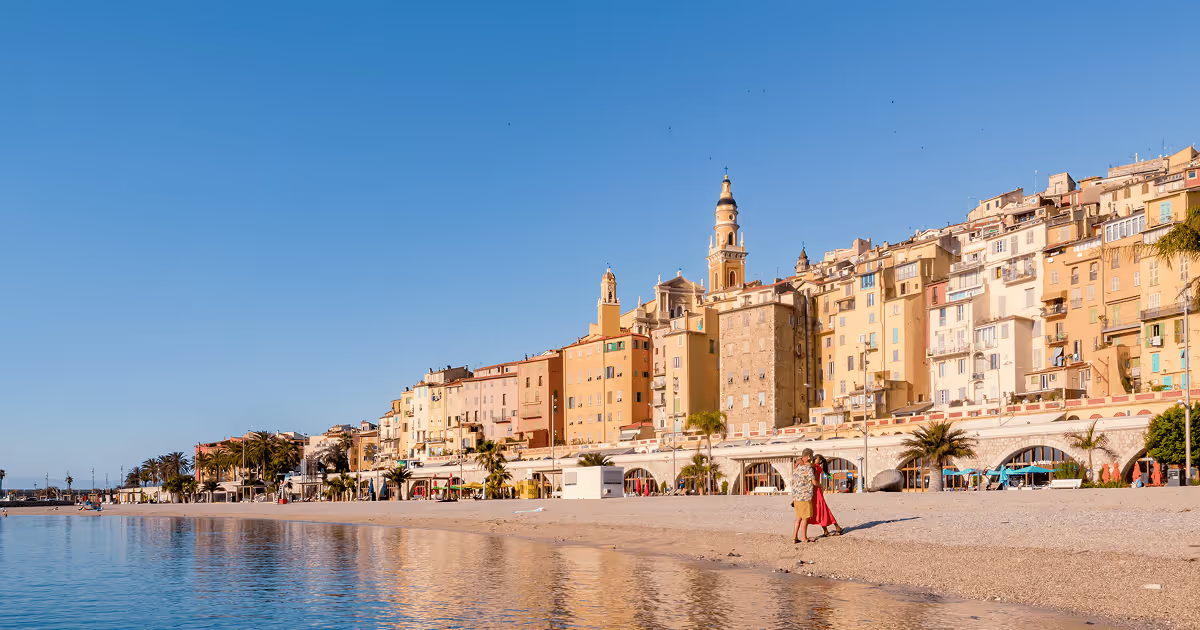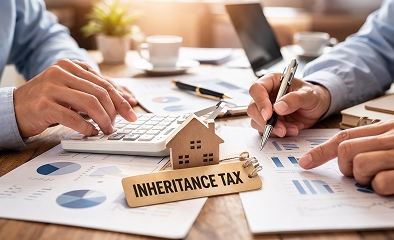Retirement in France

For British nationals looking to retire in France, there is a lot that needs to be done before they can do so. It takes a lot of planning and moving things around for British retirees.
However, it can be done, and if you've been considering it, you're in the right place to get all the help you need. There are a lot of people who believe that retiring to France is a super simple process, but that's not the case.
In this article, we'll cover everything related to state pensions, taxes, visas, and health insurance. We’ll examine the pros and cons of retiring in France, as well as anything else you need to know if you're planning to move from the UK.
If you're a UK resident and you're interested in learning more about this, please continue reading.
Can Those From The UK Still Retire To France?
Since the UK left the European Union, you may not be sure if retiring to France is still an option for you. The good news here is that UK retirees can still move to France; there are just a few more steps and hurdles than before.

Since Brexit, you will need to apply for a long-stay visa, also known as a visa de long séjour, which allows you to stay in France for 12 months; you will need this if you plan to stay for more than 90 days. This is, for all intents and purposes, the French retirement visa, as it's the first step toward getting where you want to be. Within two months of arriving, you need to apply for a 'Carte de Séjour', also known as a residency permit or card.
After you have lived there for five years, you will be able to apply for permanent French residency, or even French citizenship if you want to go down that route. But you must make sure you have your Carte de Séjour as soon as possible to make your life in France easier.
You do need to be aware that, as a UK national, you are going to be expected to meet some of the following requirements to be approved for a visa de long séjour, or any visa:
- A French property in which you are able to live permanently
- Criminal record check
- Sufficient income to support yourself (a decent monthly net income/pension income/savings)
- Comprehensive private health insurance
- Valid UK passport
Once you have completed a visa application form, the French government will assess your request and determine whether you are eligible to retire in France under the applicable legislation. Of course, if you are missing any of these elements, such as health insurance, you will be denied and will need to reapply once you meet all the specified criteria.
Benefits Of Retiring In France
Slower, More Relaxed Life
One of the things that many people rave about when retiring to France from the UK is the slower pace of life. UK citizens often find that the French way of life is quite different from what they are used to. Instead of rushing around with busy people constantly running past you, France offers a more relaxed option, with long lunches and a very strong sense of community.

Top Quality Healthcare
We will take a deeper dive into the French healthcare system later in this article, but we want to highlight it as a major pro. France consistently ranks highly for its healthcare system, meaning British retirees can be sure that they will be well looked after as long as they have the correct comprehensive private health insurance coverage.
Quality Of Life
Many UK citizens, as well as others who have moved to France, have reported that the quality of life here is much better than in other places around the world. This could be for a number of reasons, but generally it has to do with the less rigid routines, more affordable living, and the good weather.
Still Close To The UK
If you're hesitant about moving to France because it means leaving some of your loved ones behind, don't let that deter you. You can easily get to and from the UK when you live in France, so you can visit whenever you want, or family and friends can come and see what your life is like here.
Downsides Of Retiring In France
Potential Language Barrier
If you don't speak French, this could be a problem. While many French people speak English, it's preferable to speak French. So, it's important that you start learning as soon as you can, and hopefully you will be able to speak the language fluently, or at least at a passable level, by the time you move there. If you don't, it's not the end of the world, but you may struggle to communicate with some people there, which isn't ideal. For example, if you ever need to go to the French consulate for anything regarding your residency, you ideally want to show you're integrating well, and speaking French is a good start.
Certain Taxes
Certain taxes raise the cost of living in France compared to the UK. While VAT is 20% in both the UK and France, things like property taxes, wealth tax, and even income tax can be slightly higher depending on your financial situation in France. UK inheritance tax is also lower than in France, and with fewer restrictions. We have a whole section on taxes further down in this article to help you better understand this subject if you were to retire in France.
The Process Of Retiring To France From The UK Since Brexit
While it's still not particularly difficult to retire in France, there are more hurdles to jump through and more paperwork to complete than before. There's a lot of detailed paperwork that needs to be completed to obtain permanent residency, so patience is needed while the French authorities work through it. In addition, UK retirees need to apply for a long-stay visa before they can apply for residency, and their pension income, as well as general income, is more closely scrutinised.
Best French Retirement Destinations

If you are granted a retirement visa to live in France from the UK, you need to know where the best French retirement destinations are so that you can create your retirement plans!
Where you're going to live is a huge part of that, especially since UK residents need to prove where they plan to stay. So, if you're moving to France from the UK, where are the best places to live? The first thing to consider would be the cost, but there is more to it than that.
To be completely honest with you, it depends on what you're looking for. If affordability is most important to you, perhaps Northern France would be a better choice. However, for those looking for warmer weather, a more vibrant culture, and a destination generally more popular with expats, Southern France may be your best bet.
Montpellier
If you're looking for somewhere with a warm climate, extensive public transport options and a variety of French cuisine offerings, then this could be the place for you. In addition, it features a beautiful historic centre, allowing you to immerse yourself in French history and culture. There is a strong mix of old and new in Montpellier, with history celebrated alongside the modern age, creating a perfect blend. On top of that, you will find a strong expat community, so if this is something you're interested in, it's worth looking into.
Pornic
Pornic is a top-rated town in Western France, located on the Atlantic coast, making it perfect for those looking to retire in France from the UK and still want to be near the coast. With twelve different beaches and over 10 kilometres of coastline to explore, those who enjoy being near the sea will love this common place to retire in France. Additionally, if you're an avid hiker or plan to take it up while you live in France, there are numerous hiking trails, so you will have plenty to explore.
Lyon
It might be that you're retiring to France to experience city life, and if so, France's second-largest city is certainly a fantastic option. While it can be a little pricier than some of those smaller towns, we're sure that you will still make your state pension or private pension work here. In fact, the best part about Lyon is that it offers a rich cultural scene and a fantastic array of restaurants and shops without the high prices you find in Paris. It's a fantastic place to live for those who want to feel like they're at the heart of France. Conveniently, you will also find a British embassy here, so it's easy to get there if you ever need to!
Understanding Healthcare Coverage Options
Healthcare coverage in France differs from the UK. In the UK, you have the option to either use the NHS, which is free to use, or have health insurance and go down the private route. To qualify for a long-stay visa, UK retirees must have private health insurance for the first 3 months of their stay.

However, if you are receiving a UK pension, after 3 months you can use your S1 form to register with the French healthcare system. The UK should automatically provide these to UK pension recipients moving abroad, so they can access the healthcare coverage they need. Alongside your S1 form, you will need to provide other supporting documents such as proof of your UK pension, passport, proof of address and so on.
Once this has been accepted, you can cancel your private insurance if you want, but it's definitely not recommended, as the French healthcare system only covers a percentage of your medical costs. It's quite a high percentage, but for UK nationals living abroad, it might take a while to get used to this change. You don't want to be left out of pocket for medical assistance when there's no need.
Financial Planning
Before making any permanent decisions, you need to examine and understand the financial requirements to move forward. If you're retiring to France, you must make sure you have sufficient income or savings to support yourself. For a single person, this is currently around 17,000 euros per year, or 20-25,000 euros for a couple. For a single person, this means you need to earn less than the French minimum wage per year to be admitted to the country for retirement.
We strongly recommend getting the help of a financial professional here, as they will be able to provide a full, in-depth account of the financial requirements, what you need to do, and the best way to make your life as easy as possible when retiring to France as a UK national.
Cost Considerations Of Living In France
When you reach retirement age, you may be using your UK state pension, or another UK pension, to live your life going forward, which means you want somewhere that is affordable to live. Compared with the UK, especially outside major cities like Paris, the cost of living is quite different. For comparison, the top end of French rent is the bottom end of British rent. British citizens often find this a welcome change of pace and even apply for permanent residency, later becoming French residents.

Then, we move on to other cost considerations such as groceries, dining out, utilities, and other monthly expenses. We're going to level with you here. It's not too much different, but there are certain differences. In the UK, you will pay more for certain goods, and in France, you will pay more for others. You will find, though, that your annual income goes further when you retire to France, especially if you have private pensions alongside that.
Let's Look At Pensions
One of the most important things that you need to know when retiring to France is that under the current pension rules, you can access your UK pension from these shores. Whether you are receiving a UK state pension or you have a private pension, you will be able to keep them in one of your UK bank accounts, or you can have them paid into a French bank account, depending on what works best for you.
It's essential that you have your UK state pension, or your private pensions, in order before retiring to France, as it could impact your ability to stay here.
It is equally important to be aware of the recent 'overseas transfer charge' impacting solutions like QROPS in France, and why SIPPs are becoming the preferred alternative for UK citizens.
We want to talk a little about UK pension transfers, as it's a significant consideration.
When retiring to France, it is no longer advisable to transfer your UK pension as a lump sum to a Qualifying Recognised Overseas Pension Scheme (QROPS). French residents who transfer to a QROPS based in Malta are subject to a 25% Overseas Transfer Charge. It's necessary to take professional advice on this and fully understand the potential advantages and disadvantages of such a transaction.
However, there is nothing to stop you from leaving your UK pension in the UK or transferring to an international SIPP and accessing it as a French resident, and declaring it as taxable income here.
Understanding Taxes In France
So, what are the tax implications for a UK national moving to France?
When you're an expat, tax obligations can get a little tricky. For example, a common issue is double taxation, as you may be required to file taxes in both countries. However, due to double taxation treaties between the UK and France, you do not need to worry about this. This stops you from being liable for two loads of tax on the same income. However, you will be liable for any difference between the returns.
You are generally declared a tax resident of France if you have lived there for more than 182 consecutive days, or if you have registered for a residency permit. It is imperative that, instead of avoiding paying taxes like some people do, you pay whatever you owe promptly; otherwise, you could find yourself in trouble with the fiscal authorities. This includes any and ALL taxes, not just income tax.
Inheritance Tax
You will also need to consider inheritance tax, as this works differently in France than UK inheritance tax. It's advisable to get professional advice here, as UK inheritance tax vs French inheritance tax can get a little complicated. However, the double tax treaty will determine which country has the right to tax your worldwide assets/worldwide income.
Speaking to a professional ensures you know where you stand with this and fully understand your tax obligations as a tax resident of whichever country.
Other Taxes
You may still be wondering about property taxes, income tax, wealth tax, and more, but it will depend on your financial situation. You will be assessed based on your unique situation, and then it will be determined what you are liable to pay.
You need to understand, though, that if you're going to be taxed in France, you'll be taxed on your worldwide income, and you will need to declare all foreign bank accounts you have. There are penalties for non-compliance here, so ensure you declare your UK bank account, your French bank account (if you have one), and any others you may have. As we've already stressed, getting an advisor for tax purposes really is important here, as it ensures you're paying the correct amount when you pay tax.
Planning Your French Retirement

As you've seen above, there are many considerations, and it's important that UK citizens start planning for retirement in France before the time actually comes. If you don't, you could find yourself waiting a while to receive your residency permit and other crucial documentation.
It's essential that you have researched the visa application process and the visa requirements to ensure you meet the requirements for the long-stay visa before you start doing anything else.
We strongly suggest that you work with someone who can offer you professional advice on this matter, ensuring that you have everything planned and sorted, thereby eliminating some of the stress. Ideally, this will be a financial advisor or a legal professional with in-depth knowledge and experience guiding UK retirees on their retirement journey.
It's a lot to take on, and even with all of the Googling in the world, you're still better off with help along the way.

Managing your investments after moving abroad presents a mix of challenges and opportunities.

The recent UK budget has changed QROPS transfer rules and their tax treatment. Overseas Transfer Charge (OTC) of 25% now applies to EU/EEA countries too.

When comparing pension schemes in the UK and France, they are often at opposite ends of the spectrum.

Full transparency on fees and charges is a requirement for all parties involved in pension transfers.

There have been additional changes to the rules concerning the Lifetime Allowance.

Divorce can be a challenging process, even under the best circumstances.

The Pensions Regulator's guidance notes on QROPS transfers are welcome.

New pension transfer regulation will help combat pension scams.

No one anticipated the removal of the LTA in the Budget, despite the rumours that had been circulating.

Few things are more annoying than discovering hidden investment fees!

The appeal of a 'non-resident SIPP,' also referred to as an International SIPP.

Assets held in a Malta QROPS are beyond the reach of British courts in the event of a separation or divorce.

The need for guidance on Brexit-related issues for expats.

UK advisers inform their clients that they will no longer be able to deal with them.

Taking advantage of local and international tax-efficient investment plans.

Cash-flow modelling is fundamental to accurate and quality retirement advice.

The cost structures of QROPS have evolved due to the increasing competitiveness of providers.

QROPS in France: On retiring to France, if you decide to exercise your right to transfer your UK pension...

Before moving, it's important to compare the cost of living in France with that in the UK.







